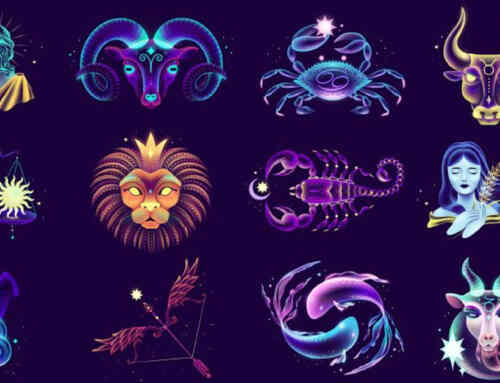This response excerpted from a sermon by Wes Cramer entitled “Psalm 119.” View/listen here: https://youtu.be/zFWToTgio1M
Creation
We understand we are in the last one-seventh of the seventh creative day. In 1 Corinthians 15:24-28, the Apostle Paul tells us that at the conclusion of the seventh day, at the very end of it, God is all in all. God-likeness pervades everyone and everything. The end of the seventh day reaches a major turning point, but is not the end of time. After the seventh day starts a new day, the eighth day. It is when God hits the “reset” button, so to speak, for all of creation. It’s a fresh start for all eternity.
Noah
Noah’s ark carried eight people: Noah, his wife, their three sons and their wives. Because of the wickedness on the earth at that time, all other humans perished in the deluge. By saving Noah’s family of eight, God essentially restarted the human race, and did so in relative righteousness.
Genesis 6:9 tells us Noah was a just man. He was uncorrupted and walked with God. Noah and his family were justified. They weren’t just any people; they were the friends of God. So, these eight souls were the seed of a fresh start for the human race in relative righteousness.
Abraham and blood clotting
God promised Abraham that if he traveled to a foreign land, God would make a covenant with him. Abraham promptly obeyed, and he journeyed to the land of Israel. Upon arrival, God wanted a visible sign of His covenant, which was circumcision. Abraham was circumcised at age 99 and Ishmael at age 13. But thereafter, now that Abraham knew of the concept of circumcision, God told him that every male baby, once it reaches eight days old, must be circumcised. Why on the eighth day? Abraham likely did not know the medical or the scientific reason.
We now know the human body has two blood clotting elements: vitamin K and a substance called prothrombin. These both reach their peak on the baby’s eighth day. If circumcision is done without these blood clotting elements fully present, whether by natural means or by injection, the baby bleeds out.
So, we might infer that eight-day circumcision represents, in a sense, a new beginning for the baby. Essentially, this represents a recovery from what otherwise would be certain death for the baby. God didn’t tell Abraham about the medical reason; rather, he tied circumcision to the Abrahamic Covenant. It was God’s unilateral assurance that he would save the human race.
The Abrahamic Covenant was God’s oath-bound guarantee that the human race would have a new start. Eight-day circumcision represented a new start in another way, representing a cutting off of the old sinful ways.
It visibly reminded every circumcised generation of the Abrahamic covenant and their commitment to serve God faithfully. When Isaac was born, Abraham faithfully exercised him on the eighth day. Hebrew scholars suggest that eight-day circumcision represents a new beginning for the baby. They say a male Jewish baby officially begins its full existence as a Jewish person upon circumcision. A true Jewish male is not just one of Jewish blood, but also one of Jewish faith, one in a covenant relationship with God.
Moses and the Tabernacle
Leviticus 8 describes the beginning of the Jewish institution called the Aaronic Priesthood. Leviticus 9 represents the installation of the high priest. Leviticus 9:1 tells us the eighth day was the day on which the high priest’s administration commenced. So, again, we see the concept of a new start.
Leprosy
Leprosy pictures sin. It’s very ugly. It’s repulsive, potentially causing blindness, paralysis, and in some cases, horrible disfigurement of body parts. There is a stigma associated with the disease.
During Moses’ time, God established a procedure for cleansing the lepers. Upon discovery of leprosy, the person was quarantined for one or more periods of seven days each. Once the leprosy was healed, the priest declared the leper healed on the eighth day. Imagine having been afflicted by this horrible disease and being certified free of this horrible disease on the eighth day! This would be a thrilling new beginning!
Jesus
Jesus was circumcised on the eighth day of his human existence. This shows his official beginning as a Jew of faith, one born under the old Law Covenant, as Paul tells us in Galatians 4. His birth, together with his circumcision, began his full existence as a Jew.
Let’s next consider the day that Jesus took his inner circle disciples up to the foothills of the Mount of Transfiguration. The disciples were given a vision of Messiah’s kingdom.
What day was it that Jesus took them up and showed them this vision? It was the eighth day. That was a picture, of course, of Messiah’s kingdom. And Messiah’s kingdom is, indeed, a new beginning for the human race.
Jesus was resurrected on the eighth day. God built the timing of Jesus’ resurrection into the old Law in Leviticus 23. The Passover lamb was slain on the Hebrew month and day Nisan 14, meaning Nisan 15 was a Sabbath.
From Leviticus 23, we know the barley sheaf was waved on Nisan 16, the eighth day. The waving of the barley sheaf represented Jesus’ resurrection.
The eighth day was Jesus’ first day as a divine being; again, a new start.
Pentecost
Pentecost was on the eighth day. God made this clear in the Law, the timing in Leviticus 23 with the Festival of Weeks that occurred on the 50th day. The Jews were to count seven full weeks after Nisan 15. That’s 49 days after Nisan 15, which Nisan 15, again, was a Sabbath day itself.
Since the 49th day is a Sabbath, the following day, the 50th day, the day of Pentecost, was the eighth day. Pentecost marks the beginning of the body of Christ as “new creatures.” Again, a new start.
There are other examples of the number eight in Scripture, but from this brief outline, we can see God uses eight to signify a change, a new start, a renewal, a new beginning, a new dispensation, a new life.
















